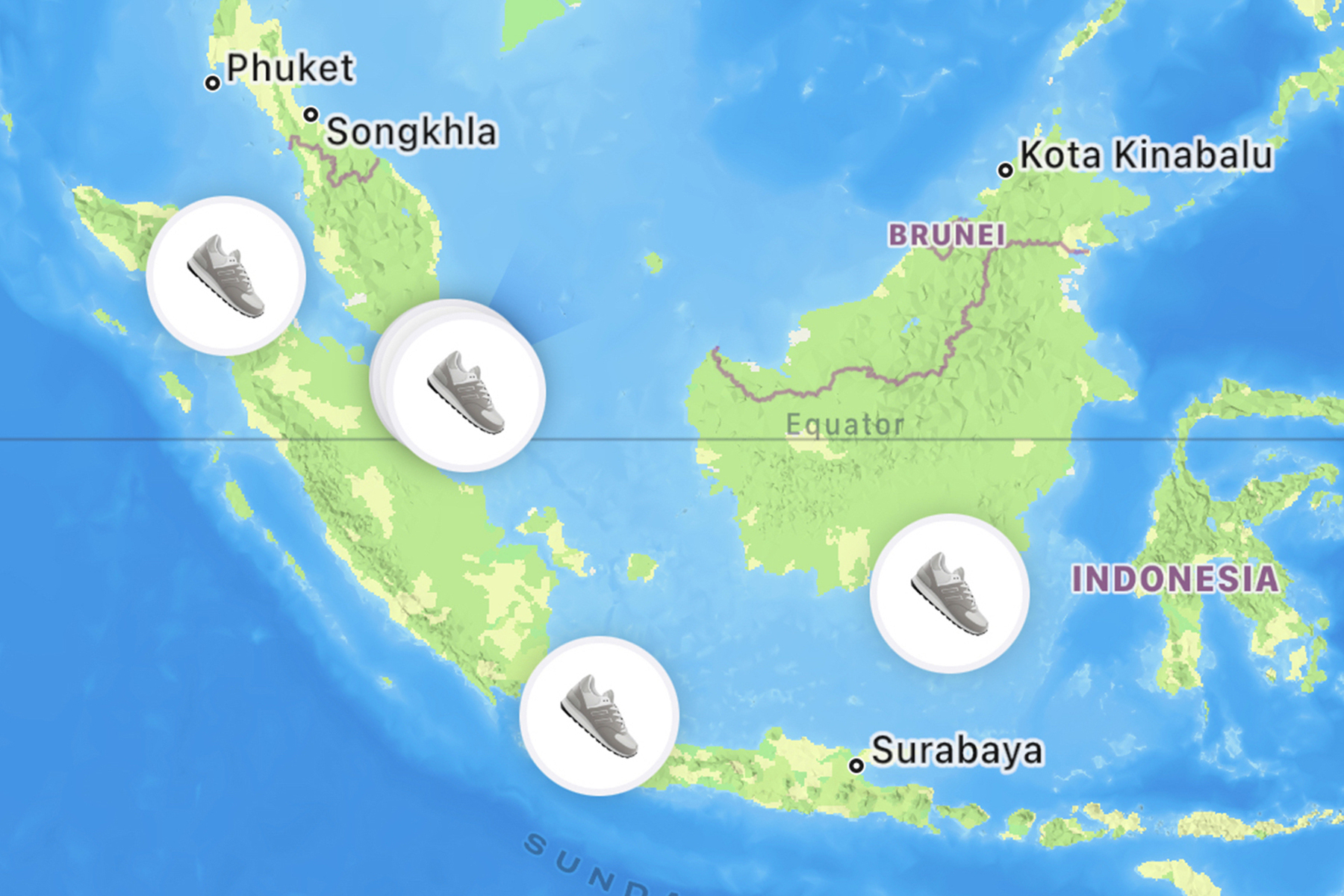A couple of years ago, Dow Chemicals, who make some of the materials that go into sports shoes, joined forces with Singapore’s national sports agency to start up a wonderful new initiative whereby they would recycle hundreds of thousands of used trainers by grinding them up into rubber particles to use to create sports and activity infrastructure such as running tracks and playgrounds. That way they’d stay out of landfill and other places where they are a nuisance.
Nothing to complain about there, surely? Well, except, of course, it didn’t happen. Shoes were collected, sure. But when Reuters popped secret trackers into 11 pairs before depositing them in the appropriate collection bin they found that precisely zero percent of them ended up being made into Singaporean running tracks.
Instead, their Find My Phone/Shoes app showed them that almost all of them ended up first at a Singaporean second-hand goods exporter, and finally in Indonesia. The reporters went in-person and found some of them for sale in second-hand vendor stalls in an Indonesian market.

Now a young naïve me would think, OK, Dow is lying to the world and should pay a heavy price for doing so - but the actual outcome could be worse; at least the shoes aren’t being thrown away. But the more I read about waste disposal, the more I realise that this is just one more example of richer countries hiding their own waste problems by offloading stuff they don’t want to poorer countries to deal with. This approach to environmental or social responsibility now strikes me as an abrogation of responsibility, exploiting the needs and sometimes desperation of others.
And it may also be ineffective in terms of protecting the environment. Often the recipients may have substantially worse infrastructure or less fastidious regulations when it comes to dealing with the goods they receive. For example, it has previously been suggested that much of the plastic supposedly destined for recycling via Asia ends up in the sea.
In any case, it’s actually illegal to import used clothes in Indonesia, a law that was put in place due to concerns about hygiene, the quality of most of the goods received (most of which may anyway end up in landfill) as well as to protect the local, more vulnerable, markets.